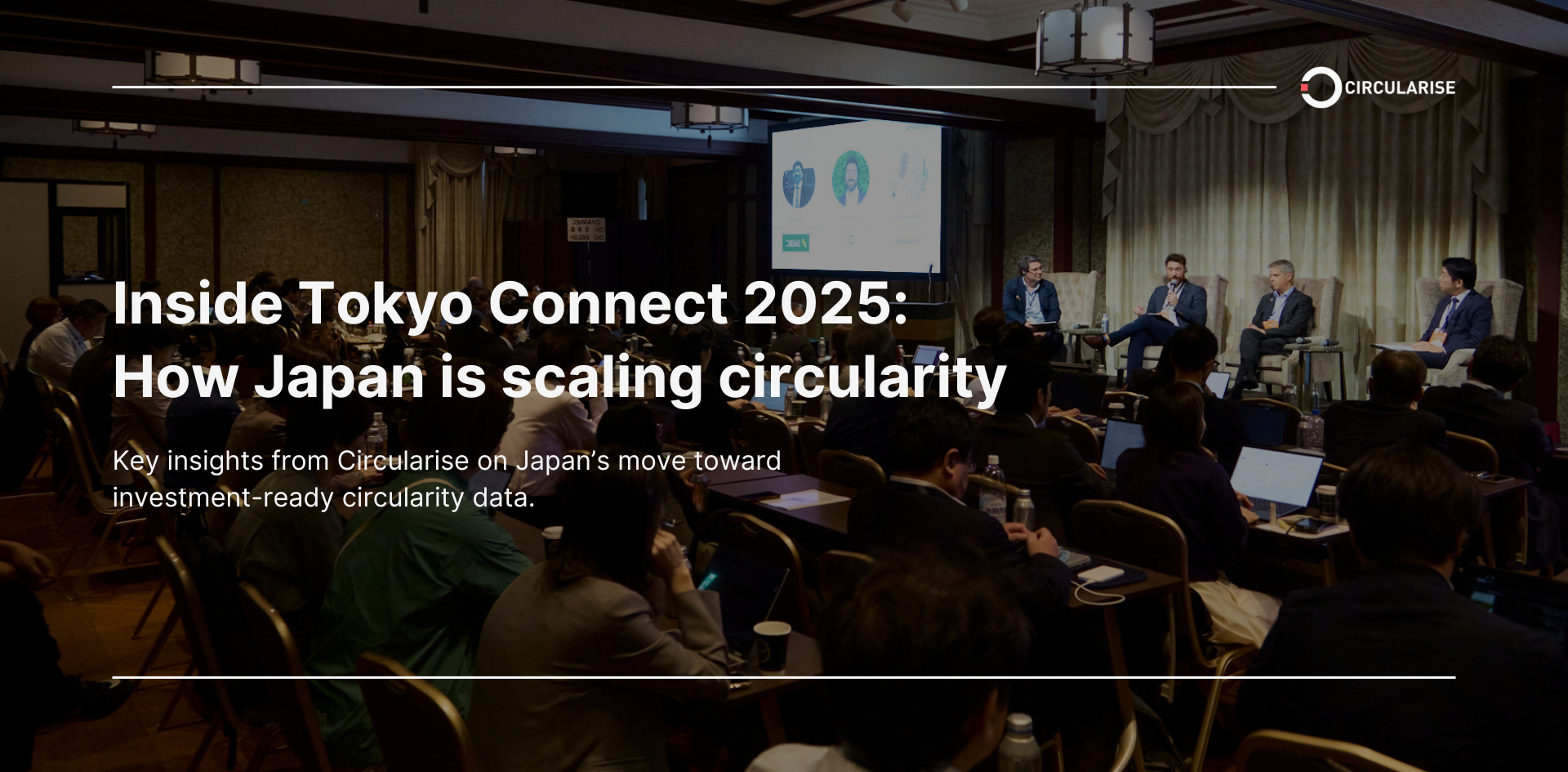The European Parliament have adopted the Corporate Sustainability Due Diligence Directive, (CS3D or CSDDD), marking a significant milestone in sustainable corporate governance. Building on the Corporate Sustainability Reporting Directive (CSRD), the CS3D is a comprehensive policy that requires in-scope companies to address sustainability risks and negative impacts throughout their business activities. While the directive originates within the European Union, its reach extends globally, encompassing non-EU companies that meet certain thresholds. The directive’s broad application highlights the pressing need for businesses worldwide to integrate sustainability into their core strategies. And with just a few years to comply, it’s time to begin preparing. This guide offers a comprehensive overview of the CS3D, detailing its objectives and scope, the big-picture requirements, and the timeline to comply. Beyond the essentials, we also consider actionable insights, drawing from examples of current practices of industry leaders and providing practical tips to get started.
What is the CS3D or CSDDD?
Part of a suite of policies from the EU Green Deal, the CS3D or CSDDD places a legal obligation on large enterprises to implement due diligence procedures. These procedures should assess and address risks on internationally recognised human rights and environmental concerns, and stop negative impacts as they are discovered.
With major implications for all large companies operating in the EU as well as business partners of these companies, the CS3D is intended to help prevent and stop negative impacts in areas like:
- Employee treatment, freedoms, and health
- Child and forced labour
- Greenhouse gas emissions
- Hazardous waste
- Resource consumption
- Endangered species
- Marine pollution
According to the directive, due diligence applies to activities within a company’s direct operations, as well as activities of subsidiaries, business partners, and suppliers. While some executives might think of the directive as a burdensome new set of obligations to comply with, the CS3D is actually in line with many other international laws and standards.
How the CS3D relates to other due diligence and sustainability legislation
The CS3D/CSDDD is aligned with a broad spectrum of EU legislative measures, reinforcing its foundational role in promoting sustainable business practices. Designed to complement and support the related Corporate Sustainability Reporting Directive (CSRD) already in force in the EU, the directive follows a cohesive and comprehensive approach to corporate sustainability in the region. The CS3D will therefore significantly increase company accountability over the impacts of their value chain.
In addition to ensuring transparency and accountability in corporate sustainability reporting, the CS3D/CSDDD also intersects with and complements other legislation, such as:
- Sustainable Finance Disclosure Regulation (SFDR)
- EU Taxonomy regulation
- EU Battery Regulation
- EU Conflict Minerals Regulations
- Forced Labour Regulation
- Prevention of Human Trafficking Directive (2011/36/EU)
- Packaging and Packaging Waste Regulations (EU PPWR)
- Environmental Liability Directive (2004/35/EU)
- International human rights standards
- The Paris Agreement
- The due diligence framework recommended by the Organisation for Economic Co-operation and Development (OECD)
One recognised shortcoming of existing regulations is that they lack a mandate requiring companies to proactively engage in due diligence or actively oversee their value chains. The CS3D/CSDDD is set to bridge this gap by increasing corporate accountability for value chain impacts. By supporting these diverse regulatory frameworks, the CS3D serves as a cornerstone in the EU's comprehensive approach to sustainable development. Over the past few years, countries in the EU such as Germany, France, and the Netherlands have already begun implementing due diligence laws. As a result, some multinational companies are already ahead of others in implementing due diligence procedures.
What are the 6 steps of due diligence?
To address human rights and environmental concerns, the directive outlines six critical steps of due diligence recommended by the OECD. The OECD is an international organisation of 37 member countries including many EU countries, the US, Japan, and Canada. These due diligence steps include:
- Policy and systems integration: developing, implementing and integrating policies and risk management systems for relevant activities
- Identification: identifying and assessing potential human rights and environmental risks
- Prevention and minimisation: implementing a prevention action plan to minimise damage, mitigate risks, and stop actual negative impacts
- Monitoring: assessing the implementation and effectiveness of due diligence measures at least once every 12 months
- Communicating: publicly communicating implementation by publishing an annual statement
- Providing remediation: when negative impacts do happen, restoring the affected people, communities, or environment to their previous state as closely as possible

CS3D timeline: Who has to comply and when?
The CSS3D or CSDDD applies to three main groups:
- Companies in the EU with 1,000+ employees and EUR 450+ million global net turnover
- Non-EU companies (“third-country companies”) with EUR 450+ million net turnover in the EU
- Companies that do not meet these specific thresholds, but are a parent company of a group that do

As previously mentioned, the new legislation will also affect direct and indirect business partners of these larger companies, since they will be a critical part of compliance for their in-scope partners.
Companies have a few years before they must comply with the CS3D, but it’s crucial to begin preparations early. In-scope companies have to comply starting with the largest companies from 2027, and continuing with additional companies over the following two years. The three waves to take note of are:
- 2027: Companies with 5,000+ employees, and 1,500 million turnover
- 2028: Companies with 3,000+ employees and 900 million turnover
- 2029: Companies with 1,000+ employees and 450 million turnover

Latest changes in scope to the CS3D
Intense negotiations in the final stages of the directive led to substantial changes from the initial proposal. In March of 2024, a provisional deal was reached, and the directive became official on 24 May after the approval and endorsement of the European Council. The substantial changes to scope include:
- fewer companies in scope: the original proposal applied to companies with 500+ employees and an annual turnover of €150 million.
- fewer activities subject to the regulation: product disposal across industries and all downstream activities in the financial sector were excluded in the final text. The latter means that the financial sector is effectively excluded from the CSDDD for now.
- fewer companies in scope in “high-impact” sectors: In the previous draft, companies in high-impact sectors like textile manufacturing and raw material mining came into scope with a net turnover of just €40 million.

How can companies benefit from the Corporate Sustainability Due Diligence Directive?
With stricter regulations to prevent and stop human rights and environmental abuses, the CS3D clearly benefits the people and the environment that would otherwise be harmed. But taking due diligence seriously is not just important for others — it has major benefits for corporations as well. These include:
- Building resilience against climate risks: A 2018 survey of the world’s 500 biggest companies found their potential financial loss from climate change was nearly one trillion USD, but climate-related opportunities added up to more than 2 trillion USD. The CS3D helps companies take advantage of climate opportunities and address financial risks.
- Enjoying stronger brand performance: A combined study with McKinsey and NeilsonIQ found that products with ESG claims experienced 28% cumulative growth over 5 years, compared to 20% for products with no ESG claims. This and other studies confirm that embracing responsible business conduct through due diligence can both strengthen brand performance and help avoid damage to brand reputation.
- Cost savings: In many cases, companies can experience major cost savings by implementing the preventative procedures mandated by the CS3D. One example is 3M’s Pollution Prevention Pays program, which prevented more than 3 billion pounds of pollution and saved 1.4 billion USD over a 35-year period.
- Avoiding costly litigation and non-compliance penalties: In the five-year period between 2015 and 2020, global climate change litigation doubled. That alone should be enough for companies to bolster their due diligence measures, but now brands have an added incentive of avoiding non-compliance penalties. Penalties for not complying with the directive are not yet established, but they could be up to 5% of net worldwide turnover.
Examples of how EU corporates are preparing for CS3D
While implementing comprehensive due diligence procedures within just a few years may seem like a huge task, companies all over the world are showing it can be done. In fact, the Corporate Human Rights Benchmark 2023 report includes examples and best practices of companies that made major progress in a five-year timespan. What’s more, many EU corporations have begun preparing and making progress due to the CS3D and other national laws. Here are examples of how some corporates in the EU have been preparing:
- Volkswagen adds Human Rights Officer role: In 2022, Volkswagen added a new role of Human Rights Officer. The officer for human rights-related issues has responsibility for the external and internal reporting obligations, dialogue with stakeholders, stakeholder management, and more.
- UniCredit Group and vendor qualification the international banking group has been working on improving their vendor qualification tool and process. Since due diligence applies to a company’s suppliers, not just a company’s own operations, vetting and working with vendors on compliance is an important step.
- Uniper publishes their climate transition plan: Creating and implementing a climate transition plan is part of the CSDDD’s requirements. International energy company Uniper has completed and published their own climate transition plan, outlining their target of carbon neutrality by 2040.
- Renault Group’s green procurement guidelines: In November 2023, Renault Group published an extensive document laying out their green procurement guidelines. The document includes corporate social responsibility guidelines for suppliers and calls on suppliers to prepare for the relevant regulations.
How can your company prepare for CS3D?
We’ve outlined several ways that companies in the EU are implementing the CS3D’s due diligence requirements. If your own company must comply with the legislation, how can you prepare?
- Don’t delay: Companies have a time window of three to five years to comply, but it’s critical to avoid delaying the process. Naturally, CS3D compliance planning will need to be in coordination with CSRD implementation, country-specific laws, and other relevant legislation — all of which will take time.
- Engage senior leadership: Executive leadership must be aware and engaged in the process. In the Corporate Human Rights Benchmark 2023 report from the World Benchmarking Alliance, the companies that progressed the fastest in the area of due diligence allocated responsibility for day-to-day management to senior leadership.
- Begin vetting partners: It’s critical to start finding the partners who will equip you and your global teams throughout this process. As one example, business partners will need to collect and report data related to human rights and environmental impacts and may need support in these areas.
- Allocate resources: In 2016, companies estimated the cost of implementing due diligence at between 270,000-535,000 EUR per year. Your own company may need to invest in expanding capacity across teams including finances, sustainability, procurement, and legal. But as we’ve seen, the benefits can far outweigh the initial investment.
- Prepare your data strategy: Begin establishing the data you will need to collect to understand and manage risks in your operations and supply chain. For instance, implementing digital product passports to provide full traceability into your supply chain.
Conclusion
2024 has already proved to be a big year for corporate sustainability legislation. As of 1 January, the first set of companies must now comply with the CSRD, and over the coming years, more companies will come into scope. With the new Corporate Sustainability Due Diligence Directive in place, due diligence must now also be high on the agenda for in-scope corporates and their business partners. In the next two years, the new directive will be transposed into national law. With these regulations coming into effect, now is the time to prepare. Compliance is no easy feat, but it all starts with information. The right data, partners, and technologies can help you understand your supply chain so you can uncover and manage risks and improve operational efficiency.
As a digital product passports and mass bookkeeping software provider, Circularise’s software helps suppliers, converters, and brands across many industries trace materials and share their environmental and human rights impact. To learn how these tools can help you with CS3D / CSDDD and other supply chain compliance, contact Circularise today.

Circularise is the leading software platform that provides end-to-end traceability for complex industrial supply chains. We offer two traceability solutions: MassBalancer to automate mass balance bookkeeping and Digital Product Passports for end-to-end batch traceability.
By having the right data, tools and partners.







